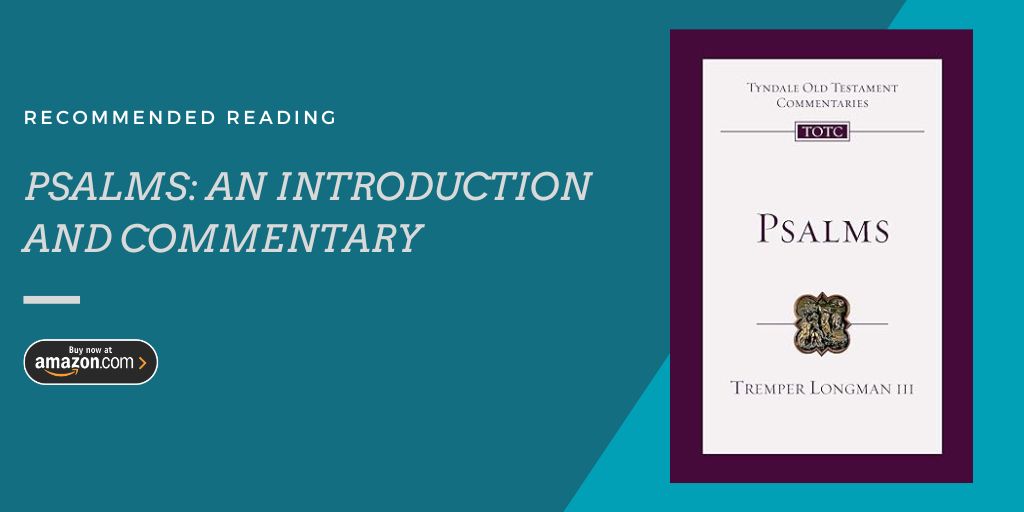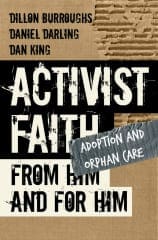I’ll be honest. Just writing this stuff on how to lament is tough. I’ve gotten feedback as I share on this topic that some people just can’t relate. Some prefer to focus on the joy of the Lord, and others on simply finding contentment. And all due respect to other people’s perspectives, but I’m glad we have a biblical model to look at.
As I continue to explore a biblical perspective on dealing with sadness, a favorite example of mine is Psalm 3, a Psalm of David. I love this one because it even tells us the circumstance under which it was written. And that story is recorded well in 2 Samuel 15.
David is called a man after God’s own heart. And for thousands of years, both Jews and Christians have used the Psalms for worship. And if we can see and relate (even just a little bit) to what David was going through, then we can explore Psalm 3 as a model for how to talk with God during these difficult times.
First, let’s explore the backstory.
Absalom’s Festering Anger
Psalm 3 references the time when David fled his son, Absalom. That story is recorded in 2 Samuel 15. However, the full story really goes back a little bit before that. It’s in 2 Samuel 13 where we see the root of Absalom’s motives. It’s the story about when Amnon (another son of David) raped Tamar, Absalom’s sister.
When David and Absalom found out about what Amnon did:
Now when King David heard of all these matters, he was very angry. (v. 21)
But he didn’t do anything about it. And Absalom just stuffed his anger:
But Absalom did not speak to Amnon either good or bad; for Absalom hated Amnon because he had violated his sister Tamar. (v. 22)
For two years. And the chapter continues to tell the story of how he had him killed:
because by the intent of Absalom this has been determined since the day that he violated his sister Tamar. (v. 32b)
Then as the news came around about what happened:
As soon as he had finished speaking, behold, the king’s sons came and lifted their voices and wept; and also the king and all his servants wept very bitterly. (v.36)
There’s that lament. David’s sons wept, and he wept very bitterly. This whole situation turned out much worse than anyone could have imagined. Ultimately, Absalom stuffed the pain and anger and sadness over what was done to his sister. That isn’t a healthy way to deal with things.
So then Absalom left for three years. Maybe he still hadn’t learned that avoiding it won’t help him heal.
Absalom’s Conspiracy
Absalom continued to harbor resentment towards his father over all of this. As the story moves to 2 Samuel 15, we see how he continues to plot against his father.
He would sit by the gate, waiting for people who are looking for a judgment from the king (David).
Then Absalom would say to him, “See, your claims are good and right, but no man listens to you on the part of the king.” Moreover, Absalom would say, “Oh that one would appoint me judge in the land, then every man who has any suit or cause could come to me and I would give him justice.” (v. 3-4)
He sneaks his way into people’s hearts and minds, sabotaging his father’s credibility and gaining the trust and respect of others.
In this manner Absalom dealt with all Israel who came to the king for judgment; so Absalom stole away the hearts of the men of Israel. (v. 6)
After several more years of this undermining his father, he makes his move to overthrow David as the king of Israel. David was being stripped of the title and position God anointed him for. Worse yet, it wasn’t being taken away by God, but by his own child who was filled with (and motivated by) bitterness and resentment.
David Flees
What happens next is interesting to me. David leaves Jerusalem.
David said to all his servants who were with him at Jerusalem, “Arise and let us flee, for otherwise none of us will escape from Absalom. Go in haste, or he will overtake us quickly and bring down calamity on us and strike the city with the edge of the sword.” (v. 14)
He chose not to fight. The greatest warrior of his time fled. This is the guy who killed Goliath. He ran away.
Why?
Maybe it was because, like with Amnon, he refused to bring harm to his own offspring. They were his legacy, after all. Maybe it was because he recognized that Absalom had swayed the public opinion of the people of Israel away, and he was honoring the will of the people.
Regardless, there were those loyal to David and the kingdom under his rule. They even brought out the Ark of the Covenant with them as they fled. And David’s response was:
The king said to Zadok, “Return the ark of God to the city. If I find favor in the sight of the Lord, then He will bring me back again and show me both it and His habitation. But if He should say thus, ‘I have no delight in you,’ behold, here I am, let Him do to me as seems good to Him.” (v. 25-26)
In all of this, David isn’t primarily concerned with what the people want (on either side of the coup). Instead, he’s concerned about what God might think about his actions in everything.
David’s destination as he fled was the “mountain where God was worshiped.”
And David went up the ascent of the Mount of Olives, and wept as he went, and his head was covered and he walked barefoot. Then all the people who were with him each covered his head and went up weeping as they went. (v. 30)
They wept.
And it was in the middle of this overthrow of the kingdom, the betrayal from his own son, everything is turned upside-down… THAT is when David offers up this conversation with God…
Psalm 3: A Psalm of David, when he fled from Absalom his son.
O Lord, how my adversaries have increased!
Many are rising up against me.
Many are saying of my soul,
“There is no deliverance for him in God.” Selah.But You, O Lord, are a shield about me,
My glory, and the One who lifts my head.
I was crying to the Lord with my voice,
And He answered me from His holy mountain. Selah.
I lay down and slept;
I awoke, for the Lord sustains me.
I will not be afraid of ten thousands of people
Who have set themselves against me round about.Arise, O Lord; save me, O my God!
For You have smitten all my enemies on the cheek;
You have shattered the teeth of the wicked.
Salvation belongs to the Lord;
Your blessing be upon Your people! Selah.
(NASB. Read Psalm 3 in other translations.)
I’ll break down what this Psalm can teach us about how to lament. But the big thing I’ll mention here right now is that David understood that sadness is okay. He knew what Absalom didn’t. You can’t stuff this junk down. You take it to God. And there’s a healthy way to do that too.
So You Had a Bad Day
Like all of us, I’ve had my share of major tragedies in my life. But as I write this, even today had its share of moments that just leave me scratching my head wondering what the heck is going on.
You’re probably not going to find that me all up on Facebook bragging about my bad day.
And my guess is that you have your share of junk going on too. And before I even break down this Psalm as a model for how to deal with sadness, I see a David who doesn’t stuff his feelings. And I seem him “and all of his servants” weeping together. And that’s a big thing when I look at a biblical model for anything we deal with in life. We have God, and we have each other.
You’re not alone.
Yet, when we ask someone how they’re doing, the typical response we get is something along the lines of, “I’m good.” Or this one has become a sort of pet peeve of mine… “I’m blessed and highly favored!” Sometimes I feel like just saying, “Really? I know you just had _______ happen.”
Let’s stop stuffing our pain, and do this thing together. We need to recognize that it’s okay to be sad and broken and angry. But let’s deal with it in a healthy way.
How can I lament with you?
Note: Read the full series at lament: a perspective on sadness in the bible






In a day of #metoo, David would have fared very poorly. A message that God is merciful even when our actions are cowardly and offensive, that time will not heal our wounds, and that dealing with troubles earlier when we are strong likely will result in a more honorable outcome. God forgives our sins but doesn’t remove all consequences
I agree that David certainly was not a well-behaved dude, and he definitely would not be looked upon favorably when measured against our modern perspectives and standards (and that’s not to say it was okay back then, because he was rebukes for his behavior). I also agree 100% that being forgiven (by God and/or people) doesn’t remove consequences.
However, David’s character and forgiveness isn’t what I’m evaluating here… just the fact that it’s okay (and even a good thing) to lament, especially as opposed to stuff our pain and struggles. David’s practice of lament in these psalms is a good example for us.
Thank you for pointing us towards a healthy way of lamentations.
You’re welcome! I definitely think that too much of the church misses this. I’m glad you find the discussion valuable.
To me “I am blessed and highly favored” is like “I am alive.” No matter what I am going through (or even better, because of it), I Am Blessed and Highly Favored. It is not a dismissal, but a affirmation. (for me anyway)
I appreciate your perspective on this! I totally get that terms like that can mean something important to some people. I think I’m really just trying to recognize that many people do just stuff pain and hurt, and try to put on a (false) happy face.
I once received a vision that ended with the words, “Weep for my Church”. I really appreciate your take on this Psalm. It’s not just okay to lament, it is badly needed. Even so, as I reach for the depths of sorrowing people try to cheer me up! (and put on a false happy face)
It seems to me that if I am not sorrowing and weeping for the church, there’s something I haven’t understood.
Absolutely. I definitely think we should “weep for the church” as you say. But I also feel that we shouldn’t overlook weeping for our own personal pains and struggles. It’s important that we as individual AND in community with each other allow ourselves to be sad and lament.
I believe that grief is never inappropriate in the face of loss. Society wants the grieving person to “push on” or, the worst: “get over it.” We shouldn’t allow other people to dictate or judge our grief. It has its own timeline, and if we try to circumvent it, we end up “stuck” in suffering. God gave us the ability to cry and mourn for a reason. It is a gift.
I couldn’t agree more!